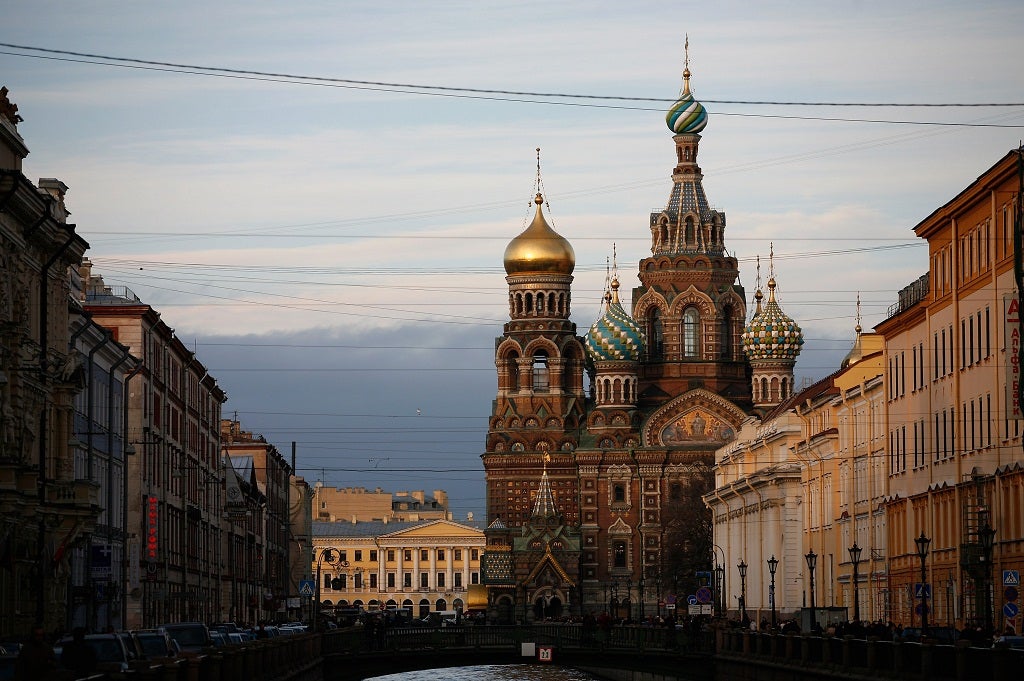I’ll happily wager Russians will have a new capital by mid-century
Moscow's time is running out - St Petersburg's renovation has brought the city a renewed sense of dignity and civic pride


Your support helps us to tell the story
From reproductive rights to climate change to Big Tech, The Independent is on the ground when the story is developing. Whether it's investigating the financials of Elon Musk's pro-Trump PAC or producing our latest documentary, 'The A Word', which shines a light on the American women fighting for reproductive rights, we know how important it is to parse out the facts from the messaging.
At such a critical moment in US history, we need reporters on the ground. Your donation allows us to keep sending journalists to speak to both sides of the story.
The Independent is trusted by Americans across the entire political spectrum. And unlike many other quality news outlets, we choose not to lock Americans out of our reporting and analysis with paywalls. We believe quality journalism should be available to everyone, paid for by those who can afford it.
Your support makes all the difference.After my third visit to St Petersburg in almost as many years, I’m ready to bet that within half a century Moscow will have to cede its precedence once again to the city of Pushkin and the Tsars. And when St Petersburg is declared Russia’s capital once again, the reasoning will essentially be the same as it was when Peter the Great founded the city in 1703: to open – or, more accurately this time, to keep open – a window to Europe.
It will be a new declaration of identity and allegiance; the definitive answer to the question that still plagues Russia’s intellectuals and Russia-watchers the world over: Europe or Asia? Even as the former Soviet republics in Central Asia are being slowly reabsorbed into their region, you can sense that Moscow, too, might be slipping back into its ancient origins at the crossing point of the tribal and trade routes that made it one of the world’s great and distinctive cities.
Why the certainty about St Petersburg’s destiny, though, and why now? In the first decade after the fall of Soviet communism, much of the city was pitifully neglected and vast tracts remained derelict. Some pockets, even close to the centre, still are. Contrary to many predictions, the Germans and Scandinavians were cautious investors: comparatively little money went to the city that had been called Leningrad for most of the Soviet period. The bulk of Nordic money went to the newly independent Baltic States, and the rest went after the fast bucks to be made in Moscow.
Things took a turn for the better in the run-up to celebrations for St Petersburg’s 300th anniversary, with large amounts of state money going into making it look the best for the festivities. Since then, restoration has come on apace.
My thesis, though, has less to do with appearances and more to do with mood and ambition. With material renovation has come a renewed sense of dignity, civic pride and the good manners – plus a certain irritating fastidiousness – for which St Petersburg was known.
The Russian Constitutional Court has moved here – paving the way for other institutions of state to follow eventually. And civic pride has spawned a host of associations – some to record history (heroic and tragic), others to protect the city’s fabric, architectural ensembles and skyline. Most striking about these groups is that the campaigning is led by young people, including architects, concerned that commercial considerations do not overrule history and aesthetics.
Their current concern is a plan for the renovation of the historical centre. They have already seen off two plans for the energy giant Gazprom to build a tower headquarters on the edge of the centre, and have a third plan, which places the tower at a distance, in their sights.
It can’t be long before this concern translates into a more political ambition for the original status of the city to be restored. With some economists forecasting, not completely in jest, that Russia will join the EU (if the EU is still around) in 30 years, the transfer of the capital will surely not be far behind.
Nureyev back in lights
In Theatre Square, I looked up to see a hoarding above the main entrance of the Conservatoire and had mentally to trace the huge Cyrillic letters one by one to believe what they spelt out. Yes, they really did spell Rudolf Nureyev, who became a non-person overnight after defecting to the West at Paris’s Le Bourget airport in 1961.
This was right opposite the home of the Kirov that he had so dramatically forsaken. The poster was for the 4 November opening of the ballet: “Rudolf Nureyev: Leap to Freedom”. Such complete turns of the wheel of fate make you feel suddenly very old.
Join our commenting forum
Join thought-provoking conversations, follow other Independent readers and see their replies
Comments